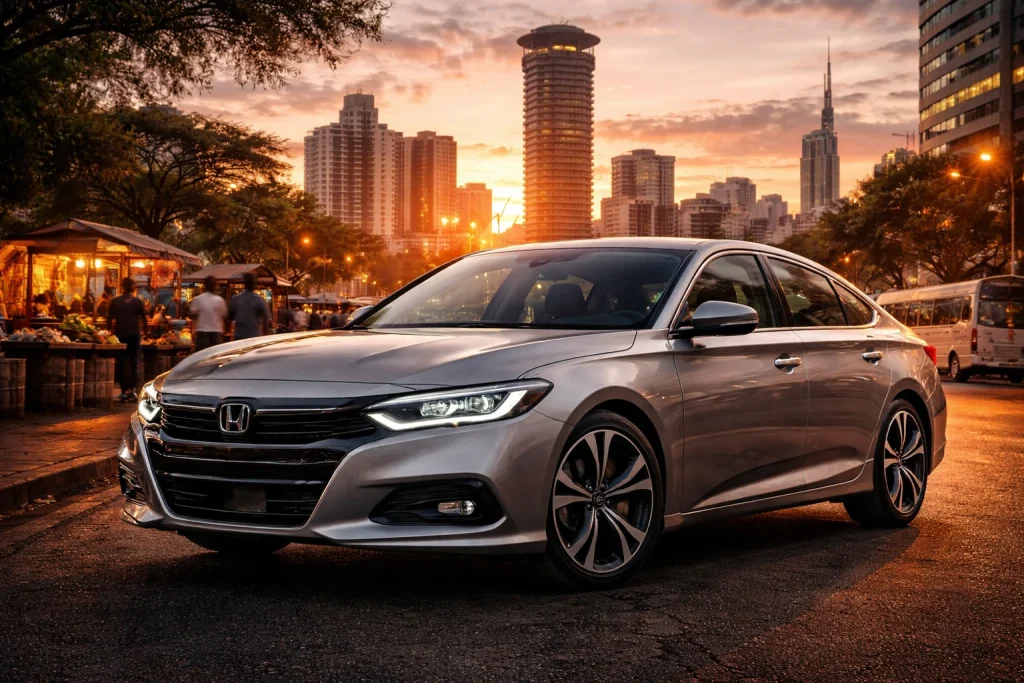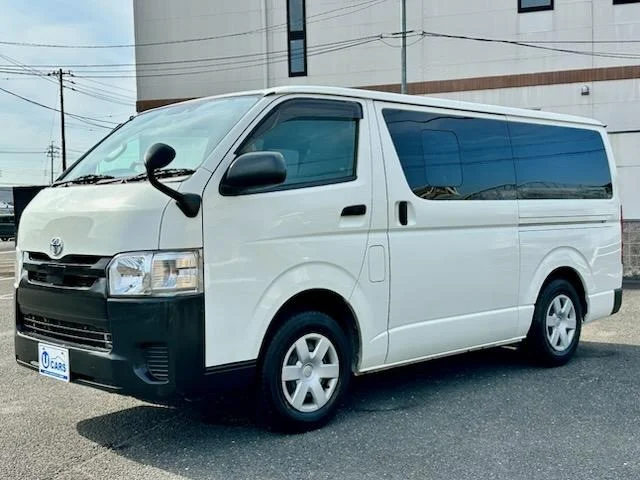Introduction: The Impact of Rising Fuel Prices in Kenya
Kenyan motorists have been feeling the pressure of rising fuel prices, with petrol and diesel costs reaching record highs in recent years. The increasing cost of fuel has made hybrid cars a more attractive option for drivers looking to cut down on fuel expenses while enjoying a modern, eco-friendly vehicle.
With fuel prices now averaging Ksh 200+ per liter, hybrid cars offer a smart solution by significantly reducing fuel consumption. But how exactly do they help Kenyan drivers save money? This guide explains how hybrid technology works, its impact on fuel efficiency, and why switching to a hybrid car is a cost-effective decision.
1. How Hybrid Cars Reduce Fuel Consumption
Unlike traditional petrol or diesel vehicles, hybrid cars combine an internal combustion engine (ICE) with an electric motor. This dual-power system helps to optimize fuel usage by:
✅ Using Electric Power at Low Speeds
At low speeds (e.g., in Nairobi’s traffic), hybrid cars run on electric power alone, reducing fuel consumption.
✅ Regenerative Braking: Recovering Lost Energy
Hybrids use regenerative braking, which converts braking energy into electricity, storing it in the battery for later use.
✅ Auto Start-Stop System
When idling in traffic, a hybrid car’s engine shuts off, saving fuel that would otherwise be wasted.
✅ Optimized Fuel-Engine Usage
The electric motor assists the petrol engine, reducing the workload and improving fuel efficiency.
📌 Fact: A Toyota Prius Hybrid consumes 50% less fuel than a standard petrol sedan.
2. Fuel Efficiency Comparison: Hybrid vs. Petrol Cars
Hybrid cars can achieve 2x better fuel economy compared to conventional petrol vehicles.
Fuel Consumption Comparison
| Car Model | Fuel Type | Fuel Economy (km/l) | Fuel Cost for 1000km (Ksh) |
|---|---|---|---|
| Toyota Prius Hybrid | Hybrid (Petrol + Electric) | 22 – 25 km/l | Ksh 8,000 – 9,500 |
| Toyota Aqua Hybrid | Hybrid (Petrol + Electric) | 25 – 30 km/l | Ksh 6,500 – 8,000 |
| Honda Fit Hybrid | Hybrid (Petrol + Electric) | 22 – 28 km/l | Ksh 7,000 – 9,000 |
| Toyota Axio Hybrid | Hybrid (Petrol + Electric) | 22 – 26 km/l | Ksh 7,500 – 9,500 |
| Toyota RAV4 Hybrid | Hybrid (Petrol + Electric) | 16 – 18 km/l | Ksh 11,000 – 13,000 |
| Toyota Premio Petrol | Petrol Only | 10 – 12 km/l | Ksh 18,000 – 20,000 |
| Nissan X-Trail Diesel | Diesel Only | 8 – 11 km/l | Ksh 20,000 – 25,000 |
📌 Tip: If you drive long distances, a Toyota Aqua Hybrid or Prius Hybrid will save you over Ksh 10,000 per month on fuel.
3. How Much Can You Save on Fuel with a Hybrid Car?
Kenyan drivers who switch to hybrid cars can save up to Ksh 120,000 per year on fuel costs.
Fuel Savings Calculation (Assuming 2,000 km driven per month)
| Car Type | Monthly Fuel Cost (Ksh) | Annual Fuel Cost (Ksh) |
|---|---|---|
| Hybrid Car (Prius) | Ksh 12,000 | Ksh 144,000 |
| Petrol Car (Premio) | Ksh 24,000 | Ksh 288,000 |
✅ Savings per Year: Ksh 144,000
📌 Fact: A Kenyan driver who spends Ksh 24,000 per month on petrol can cut their fuel bill in half by switching to a hybrid.
4. Hybrid Cars Are Ideal for Nairobi’s Traffic
Kenya’s urban centers, especially Nairobi, Mombasa, and Kisumu, experience heavy traffic congestion daily. Traditional petrol cars waste fuel in traffic jams, while hybrids use electric power, significantly reducing fuel wastage.
Why Hybrids Work Best in City Traffic
✔ Electric-Only Driving: Hybrids can drive short distances without using petrol.
✔ Auto Start-Stop Feature: Engine shuts off when idle, saving fuel.
✔ Regenerative Braking: Converts braking energy into stored power.
📌 Tip: If you frequently drive in traffic jams, a hybrid car will save you more fuel than a conventional petrol car.
5. Hybrid Cars Require Less Maintenance
Aside from fuel savings, hybrid vehicles have lower maintenance costs than petrol or diesel cars.
Lower Maintenance Costs for Hybrid Cars
✔ Fewer Oil Changes: Hybrid engines run less often, reducing wear.
✔ Longer-Lasting Brakes: Regenerative braking reduces brake pad wear.
✔ Less Engine Wear & Tear: The electric motor helps the petrol engine last longer.
Hybrid Maintenance Cost vs Petrol Car
| Service Type | Hybrid Car (Ksh) | Petrol Car (Ksh) |
|---|---|---|
| Oil Change (Per Year) | 10,000 – 15,000 | 18,000 – 25,000 |
| Brake Pad Replacement | 10,000 – 15,000 | 15,000 – 20,000 |
| Engine Wear & Repairs | 15,000 – 30,000 | 30,000 – 50,000 |
📌 Fact: Hybrid drivers spend 30-40% less on maintenance over the vehicle’s lifetime.
6. Which Hybrid Cars Are Best for Fuel Savings in Kenya?
🚗 Best Hybrid Cars for Maximum Fuel Efficiency
✔ Toyota Aqua Hybrid – 25-30 km/l (Best for city driving)
✔ Toyota Prius Hybrid – 22-25 km/l (Best all-round choice)
✔ Honda Fit Hybrid – 22-28 km/l (Compact & efficient)
🚙 Best Hybrid SUVs for Highway & Off-Road Use
✔ Toyota RAV4 Hybrid – 16-18 km/l (Best hybrid SUV for Kenya)
✔ Mitsubishi Outlander PHEV – 14-16 km/l (Plug-in hybrid with 4WD)
✔ Lexus RX 450h – 12-16 km/l (Luxury hybrid SUV)
📌 Tip: If you want to save the most fuel, choose a hybrid with at least 22 km/l fuel efficiency.
7. Final Verdict: Is a Hybrid Car Worth It in Kenya?
YES! Hybrid cars are a smart investment in Kenya, especially with rising fuel prices.
Key Takeaways:
✅ Save up to Ksh 120,000 per year on fuel.
✅ Lower maintenance costs than petrol cars.
✅ Best for traffic jams & long-distance driving.
✅ Eco-friendly & future-proof investment.
🚗 Want to import a fuel-saving hybrid car? Contact Cars Kenya today!
📞 Call/WhatsApp: [Your Contact Info]
🌐 Visit: [Your Website]
📍 Location: [Your Office Address]





